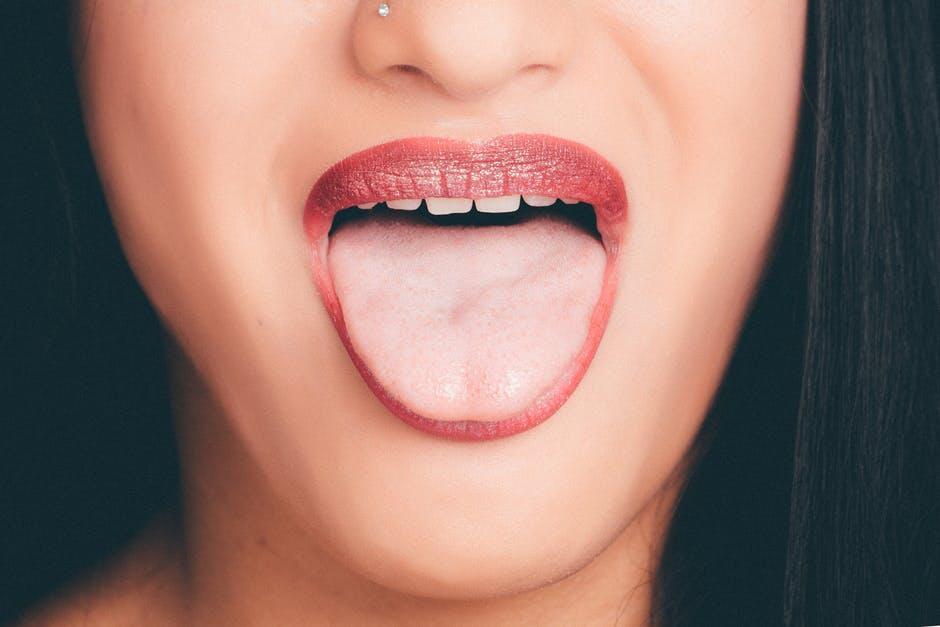
Yellowish Roof of Mouth: What to Know About Oral Thrush

Fun fact: yeast is a fungus with a complex cellular organization similar to that of “higher level” organisms like animals. Less fun fact: yeast is also living in your body, but most of the time it’s not doing any harm at all!
Sometimes, however, yeast can cause problems. If you notice a yellowish roof of mouth, you may be experiencing yeast overgrowth. In other words, you may have oral thrush.
But what is oral thrush? What are the symptoms and how can you cure it? Let’s talk about it! Read on to learn all about this common oral health condition.
What Is Oral Thrush?
Oral thrush is otherwise known as oral candidiasis. It’s a fungal infection that’s caused by the overgrowth of Candida albicans, a type of yeast that’s commonly found in the mouth and digestive system. In other words, it’s a yeast infection, but it’s nothing to worry about and it’s a common condition.
Small amounts of Candida are often present in the mouth, and they don’t cause any harm. With that in mind, certain factors can contribute to candida overgrowth, and that’s when someone can develop oral thrush.
What Causes Oral Thrush?
So how does someone develop oral thrush? Some people are more predisposed to developing oral thrush than others, and it’s nothing to be embarrassed about or ashamed of.
First, people with weakened immune systems due to conditions such as HIV, AIDS, diabetes, or cancer are more likely to develop oral thrush. Without a hefty immune system, it’s easier for the yeast to overgrow.
Dry mouth can also make someone more likely to develop oral thrush. Certain factors can make someone more likely to develop dry mouth, such as certain medications, smoking, or mouth breathing at night. As a result, those conditions can also make someone more susceptible to oral thrush.
Dentures, which can also trigger dry mouth, can cause yeast overgrowth if they’re not properly cleaned or taken care of. Elderly people are at a greater risk of oral thrush.
On the note of not cleaning well, poor oral hygiene can trigger yeast overgrowth. If someone isn’t brushing and flossing, as well as rinsing their mouth often, yeast can grow.
Antibiotic use and inhaler use can also both trigger oral thrush. These things are less avoidable, so if you need to use those products, try to minimize your risks. We’ll discuss prevention methods later in the article.
Symptoms of Oral Thrush
How do you know if you have oral thrush? Well, there are several potential symptoms to look out for, but one is more obvious than the rest. If you have a yellowish roof of mouth or yellow patches on your tongue, it’s a sign that oral thrush has settled in.
The lesions can be anywhere in your mouth or throat. You may even see them on your tonsils. Many people confuse oral thrush for strep throat, but oral thrush should be pretty much painless and far easier to treat.
You may experience soreness or discomfort, but it shouldn’t be too severe in most cases. If you experience severe pain, it may benefit you to see a doctor to rule out strep throat or a more severe infection before opting for over-the-counter methods.
You may experience a lack of taste, as well as difficulty swallowing food and water. It may feel as though something is stuck in your throat.
Before the white and yellow patches appear, you may notice redness in your tongue and gums. This could indicate less severe oral thrush or the early stages of oral thrush.
Oral Thrush Treatment and Diagnosis
So you suspect that you have oral thrush. You have the symptoms, what do you do now?
If you go to the doctor to diagnose your oral thrush, they’ll take a swab of the affected area to test it for candida. If the oral thrush is obvious, they may just be able to do a visual examination.
When it comes to treating your oral thrush, there are options.
Antifungal medications, like oral rinses or lozenges that contain clotrimazole or nystatin, are often used for oral thrush. In severe cases, a doctor may choose to prescribe oral antifungal medications.
In milder cases, taking a probiotic (or eating probiotic foods) can help clear up the oral thrush. A doctor may also recommend an antiseptic mouthwash.
If an underlying condition triggered the candida overgrowth, it may be necessary to clear up that condition first before tackling the oral thrush.
Can You Prevent Oral Thrush?
Is oral thrush preventable? In most cases, yes. If an underlying condition triggered your oral thrush, this may not be the case, but if you’re otherwise healthy, you can prevent it.
Make sure to practice good oral hygiene habits. You should brush your teeth and floss every day, and consider using an antiseptic mouthwash. This will create an environment in your mouth that’s not suitable for yeast overgrowth.
Do your best to eat a healthy diet that’s rich in probiotics. You should also avoid smoking and the excessive consumption of alcohol. If you wear dentures, make sure to remove them every night and keep them clean.
Despite all of your efforts, it’s possible that you’ll still develop oral thrush. If that’s the case, don’t worry. As we mentioned, it’s a common condition and it’s usually quite easy to treat, especially with the right antifungal medications and products.
Yellowish Roof of Mouth? Might Be Oral Thrush
If you’re experiencing a yellowish roof of mouth, oral thrush may be the culprit. Don’t worry. This condition isn’t permanent and there are easy ways to resolve it.
If you suspect that you may have oral thrush, talk to a doctor to get an exam. Then it’s time to start treating it so you can have a healthy mouth again.
At Kiwi Drug, we have a wide variety of medications and other health products available for international shipment at reasonable prices. Check out the products we have to treat oral thrush so you can start healing!
Related Posts

